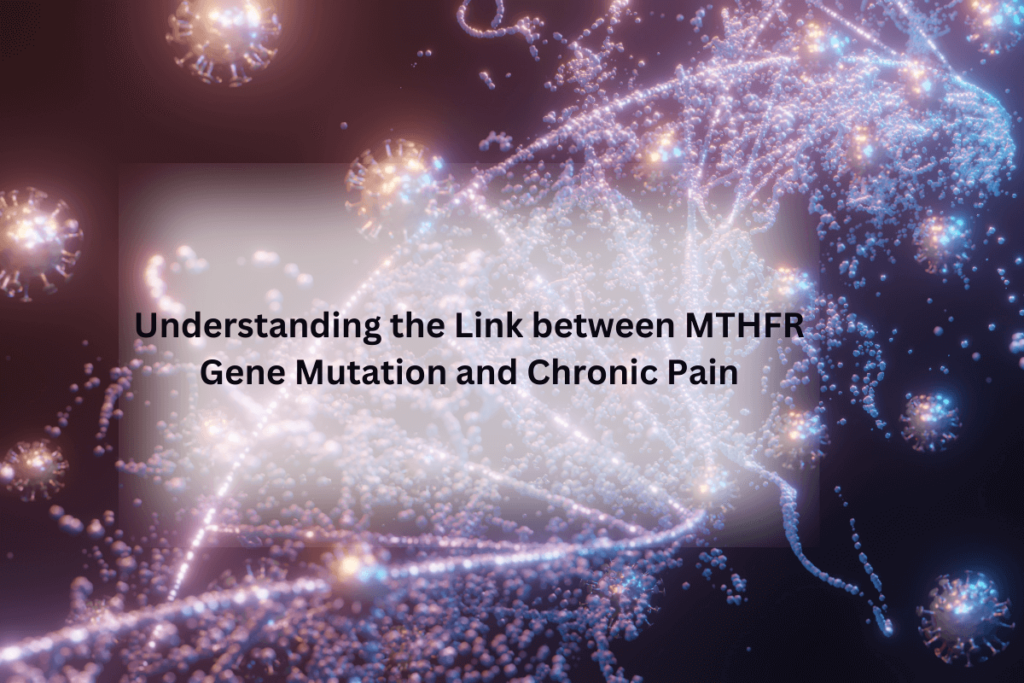Introduction
Millions of people worldwide suffer from chronic pain, a complicated condition that frequently deteriorates the quality of life. While various factors contribute to chronic pain, the MTHFR gene mutation has been linked to the onset and severity of chronic pain in recent studies. This article will focus on understanding the MTHFR gene mutation and its effects on chronic pain. In addition, we will investigate the potential advantages of green kratom strains in pain management.
Chronic Pain and a Mutation in the MTHFR Gene
The MTHFR (methylenetetrahydrofolate reductase) gene produces an enzyme necessary for the body’s vital biochemical process of methylation. DNA repair, the production of neurotransmitters, and detoxification are just a few of the bodily functions that involve methylation. However, certain genetic variations in the MTHFR gene can affect methylation processes, resulting in decreased enzyme activity.
The MTHFR gene mutation has been linked to an increased risk of chronic pain conditions like fibromyalgia, migraines, neuropathic pain, and pain in the musculoskeletal system.
Consequences for Patients with Chronic Pain
Recent research suggests that a mutation in the MTHFR gene may affect the onset and severity of chronic pain. The transformation can disrupt detoxification processes, raise inflammation levels, and alter the production of neurotransmitters, all of which impact how people perceive pain. As a result, people with the MTHFR gene mutation may be more likely to develop chronic pain conditions like fibromyalgia, migraines, neuropathic pain, and pain in the musculoskeletal system.
Personalized Strategies and Genetic Testing
Genetic testing can reveal a person’s genetic predisposition to chronic pain and help identify mutations in the MTHFR gene. Individuals and healthcare professionals can develop individualized pain management strategies with the help of a person’s genetic makeup. Healthcare providers can tailor treatment plans that address the particular requirements and difficulties associated with the MTHFR gene mutation by incorporating this genetic information, possibly leading to more efficient pain management methods.
Chronic Pain: A Holistic Approach
Although there is no cure for chronic pain, people with the MTHFR gene mutation can look into holistic methods of reducing symptoms and enhancing their quality of life. An anti-inflammatory diet, stress management, regular exercise, and improving sleep hygiene are all essential aspects of a healthy lifestyle that can help alleviate pain. Additionally, the body’s methylation processes may be supported, and certain supplements, such as methylated vitamins and minerals, may relieve chronic pain symptoms.
Collaboration with Medical Professionals.
It is essential for people who suffer from chronic pain, particularly those who have a mutation in the MTHFR gene, to work closely with medical professionals. Medical professionals can offer direction, monitor a patient’s symptoms, suggest suitable treatments, and check that any interventions follow the patient’s healthcare plan. This collaborative strategy guarantees a comprehensive and individualized approach to managing chronic pain.
Green Kratom Strains for the Treatment of Chronic Pain
The tropical tree Kratom, native to Southeast Asia, has gained popularity due to its potential to relieve pain. Alkaloids in it work with opioid receptors in the body to alleviate pain and boost feelings of well-being. Green kratom strains, in particular, have demonstrated promise for pain management.
Green kratom strains like Green Malay, Green Maeng Da, and Green Borneo are well-known for their balanced effects, including improved mood, energy, and pain relief. These strains are accepted to have pain-relieving properties while keeping a more direct and moderate invigorating impact contrasted with red kratom strains. Green kratom strains are said by many users to provide a holistic approach to pain management by reducing chronic pain, improving focus, and elevating mood.
The Advantages of Green Kratom Sorts Pain Relieving
The potential pain-relieving properties of the green kratom strains are highly regarded. These strains have alkaloids that work with the body’s opioid receptors to reduce pain and improve comfort.
Enhanced Energy and Focus
Green kratom strains are frequently linked to increased energy levels and mental clarity, in contrast to some red kratom strains that may cause sedation. People with chronic pain who need to be productive and do daily things may benefit from this.
Mood Enhancement
Chronic pain can harm mental health, resulting in low mood, anxiety, and depression. Green kratom strains are well-known for improving mood and promoting a sense of well-being, which can help alleviate the emotional burden of chronic pain.
Stress and anxiety are reduced:
Green kratom strains have anti-anxiety properties, which can help people with chronic pain control their stress and anxiety. These strains may help manage pain and promote a more balanced mental state by causing a state of relaxation and tranquillity.
Conclusion
Gaining insight into the complex nature of chronic pain is made possible by comprehending the connection between the MTHFR gene mutation and the condition. Green kratom strains may be an option for pain management, but more research is needed to understand how genetics and chronic pain interact fully. Green Kratom’s analgesic, energy-boosting, mood-enhancing, and anxiety-relieving properties are best to deal with chronic pain and elevate your health.




Thank you for illuminating the connection between MTHFR gene mutation and chronic pain! Your article provides valuable insights for those navigating this complex aspect of health.